Working resources
contents: Jobs, Taleb, Aaronson, fish, Lessig, Louis Blanc, Musk, philosopher
************
Steve Jobs start with the customer/user experience on youtube here
background link Java to open.doc
******
Spielberg on John Ford and art



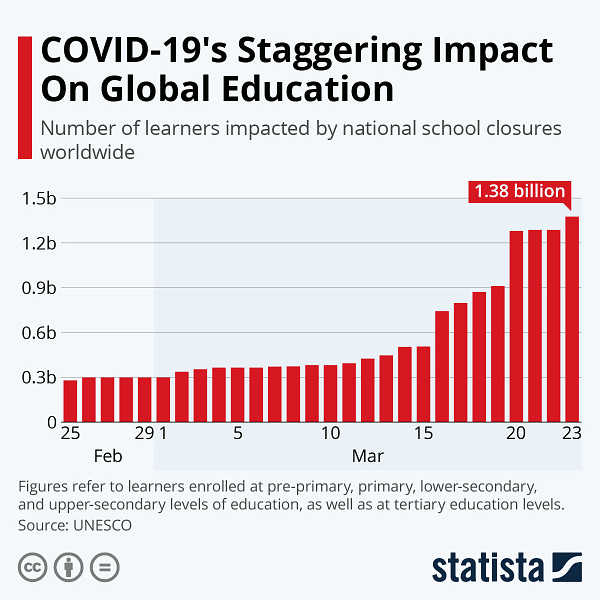

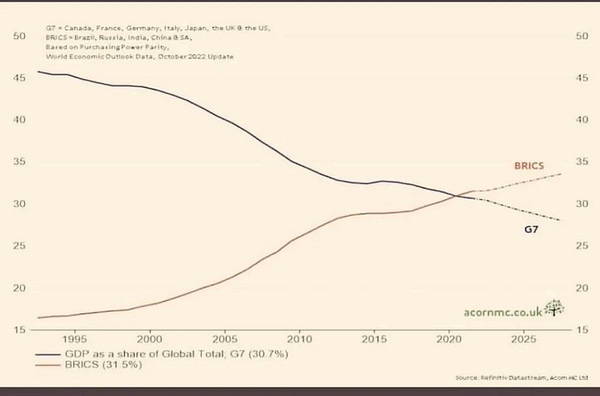
barely discussed barely mentioned




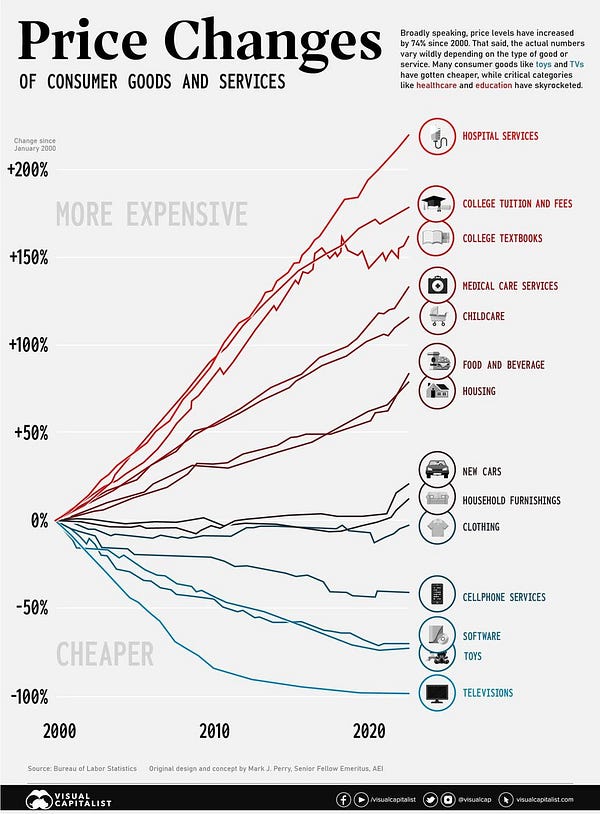

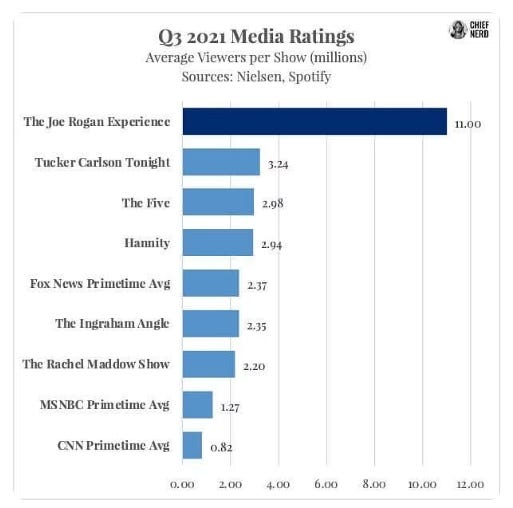

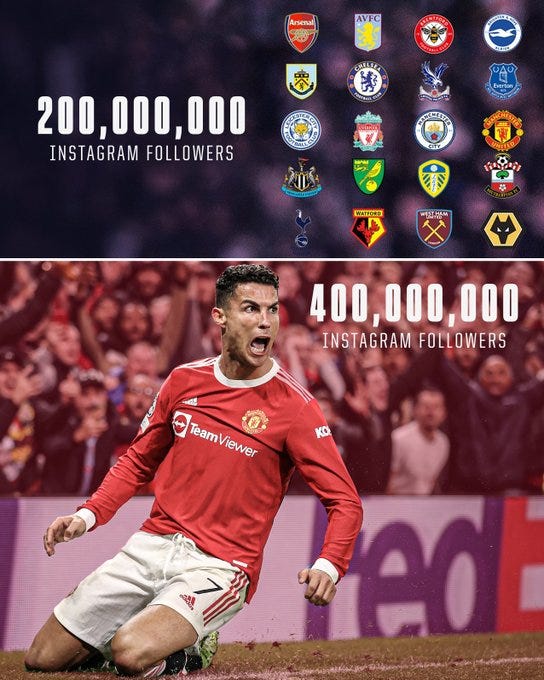

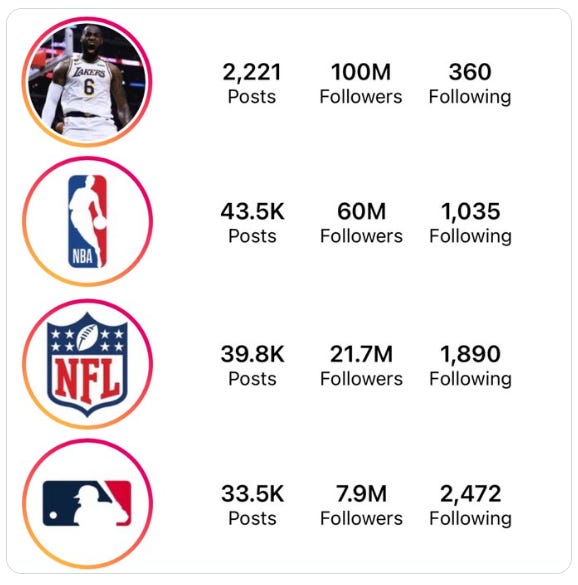





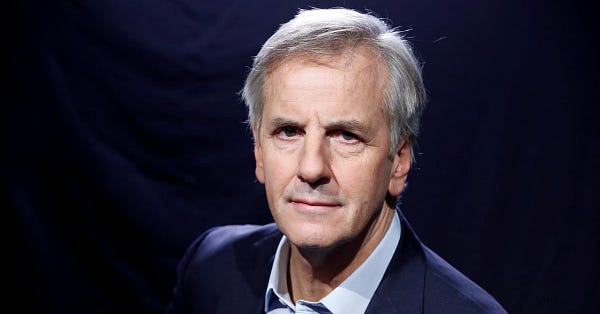


Nassim Nicholas Taleb on turkeys
The Sunday Times called his 2007 book The Black Swan one of the 12 most influential books since World War II.[2]
https://charlierose.com/videos/15268
To 1.32 the turkey
******
Scott Aaronson on AI and nuclear- see below
***
more Steve
*****
Steve 6 sigma
Steve in Sweden AI
Steve just say no
****
********
Fish ethos environment- deep sea trawling Claire Nouvian (see below)
https://www.penelope-jolicoeur.com/2013/11/take-5-minutes-and-sign-this.html
https://www.penelope-jolicoeur.com/2013/11/prends-cinq-minutes-et-signe-copain-.html
David Attenborough
Bernard de la Villardière a qui tout cela profite t-il
who benefits from all this
Cui bono? (more below)
******
the shift project https://theshiftproject.org/en/article/training-tommorows-economic-actors/
Dan Buettner https://www.ted.com/talks/dan_buettner_how_to_live_to_be_100/transcript?language=en
the big companies/ brands https://stuartwiffin.substack.com/p/the-big-companies
https://writingproject.fas.harvard.edu/pages/writing-guides
UFO balloon https://twitter.com/haveigotnews/status/1625089152847839233?s=20
4 cucumbers https://twitter.com/haveigotnews/status/1628728763063181312?s=20
5 pledges https://twitter.com/haveigotnews/status/1628711630409240578?s=20
Reese’s book club https://reesesbookclub.com/article/4eRlfCOXueqPrm6ZnQpzwl
Derren Brown anxiety https://www.youtube.com/watch?v=AVblCpr_qAc
trading crypto Buffet https://twitter.com/Stephen_Geiger/status/1591502421129416706?s=20&t=HYfvqN_NuEElzrNm45QMiA
causative verbs https://stuartwiffin.substack.com/p/causative-verbs
the more the merrier https://twitter.com/bgsprung/status/1591497637680799745?s=20&t=HYfvqN_NuEElzrNm45QMiA
teachers lunchboxes https://www.sciencespo.fr/learning-lab/en/the-teachers-lunchboxes-a-place-where-to-transform-pedagogy-and-share-innovative-practices/
githib pilot https://twitter.com/karpathy/status/1608895189078380544?s=20&t=mO6NnLNMBj8denyeg-lP2Q
Lessig annoyed https://medium.com/jammernd/what-this-page-is-about-b33412762325
Presentation https://medium.com/jammernd/on-presentation-software-keynote-and-better-7d2606d9ded5
the Lessig method https://medium.com/jammernd/on-presentation-software-keynote-and-better-7d2606d9ded5
https://lessig.org/gallery/tag:Copyright#pop5266
how to
https://youtu.be/whTwjG4ZIJg?t=13
before after https://www.youtube.com/watch?v=V8eLdbKXGzk
Eric Mazur eric mazur https://youtu.be/rvw68sLlfF8?t=27
data https://twitter.com/domjoly/status/1575742833067270144?s=20&t=gKm9d4NWxGKCJCIEWfu2xA
trolley car
the hoffman process https://www.hoffmaninstitute.org/wp-content/uploads/PPFL-4Email-rev2.pdf
Shellenberger on hurricanes https://twitter.com/ShellenbergerMD/status/1578053093521911810?s=20&t=ERrUrBI1euTi30-InVCL0Q
Feynman http://calteches.library.caltech.edu/607/2/Feynman.pdf
****
the shift project https://theshiftproject.org/en/article/training-tommorows-economic-actors/
Prizes
Claire Nouvian was born in Bordeaux. After a career in journalism, she engaged in advocacy for protection of the ocean and marine life.[1] She was awarded the Trophée des femmes en or [fr] in 2012.[2] She received the Goldman Environment Prize in 2018, the second French person to receive this prize (after biologist Christine Jean in 1992).[3][4]
She describes her strategy as an application of investigative journalism. She first identified the problem, honed in on the causes, interviewed the major players and then sieved through reams of data to expose the ecological and economic flaws of the business.
“Deep-sea bottom trawling applies the most destructive fishing to the most fragile ecosystem,” Nouvian told the Guardian in an interview ahead of the Goldman award ceremony. “The seafloor has intricate features that form over years, like cities. Bottom trawling wipes it out.”
This was followed by a petition calling on the government to ban a practice that was environmentally destructive and economically unviable. With the help of a viral cartoon on the subject by acclaimed French illustrator Pénélope Bagieu, more than 900,000 people signed up, forcing first Intermarché, then the French and UK governments, then the European parliament and council to agree on restrictions. From June 2016, European fleets have been banned from bottom trawling at depths of more than 800m.
https://www.penelope-jolicoeur.com/2013/11/prends-cinq-minutes-et-signe-copain-.html
Background[edit]
L. Cassius ille, quem populus Romanus verissimum et sapientissimum iudicem putabat, identidem in causis quaerere solebat, cui bono fuisset?[1]
Lucius Cassius, whom the Roman people used to regard as a most honest and most wise judge, was in the habit of asking time and again in lawsuits: "to whom might it be for a benefit?"
—Cicero: Pro Roscio Amerino, §§ 84, 86
Another example of Cicero using Cui bono is in his defence of Sextus Roscius, in the Pro Roscio Amerino, once again invoking Cassius as the source: "Let that maxim of Cassius apply."[2]
American sociologist Peter Blau has used the concept of cui bono to differentiate organizations by who has primarily benefited: owners; members; specific others; or the general society.[3]
See also[edit]
General:
Quis custodiet ipsos custodes? is a Latin phrase found in the work of the Roman poet Juvenal from his Satires (Satire VI, lines 347–348). It is literally translated as "Who will guard the guards themselves?", though it is also known by variant translations, such as "Who watches the watchers?" and "Who will watch the watchmen?".
The original context deals with the problem of ensuring marital fidelity, though the phrase is now commonly used more generally to refer to the problem of controlling the actions of persons in positions of power, an issue discussed by Plato in the Republic. It is not clear whether the phrase was written by Juvenal, or whether the passage in which it appears was interpolated into his works.
https://en.wikipedia.org/wiki/Quis_custodiet_ipsos_custodes%3F
https://fr.wikipedia.org/wiki/Bernard_de_La_Villardi%C3%A8re
M6 pour reprendre la présentation de Zone interdite, le magazine dominical de grand reportage et de société créé par Patrick de Carolis en mars 1993. De 2001 à 2005, il présente parallèlement Ça me révolte sur la même chaîne7.
En 2003, il fonde sa société de production, « Ligne de front »8, avant de racheter le site internet d'information lesinfos.com7.
À partir de septembre 2005, toujours sur M6, il présente Enquête exclusive le dimanche
En 1984, il rejoint le Journal de l'île de La Réunion. Il retrouve les ondes en 1985 à Médi 1, une radio franco-marocaine installée à Tanger, où il traite de grands dossiers de politique internationale[pas clair].
En 1987, Bernard de La Villardière participe au lancement de France Info avant de rejoindre RTL pour assurer la présentation des journaux du matin le week-end. Pendant sept ans, il partagera son temps entre l'antenne et le reportage (révolution roumaine, guerre du Golfe, affaire du sang contaminé, etc.).
******
Jordan Peterson https://youtu.be/aMcjxSThD54?t=307
The type of number that often surfaces in discussions about gender equality:
77%–the overall ratio at the Bank of women’s wages to men’s
The surprising number from a new working paper by Jishnu Das, Clement Jobert, (both from DECRG) and Sander Florian Tordoir (from HR):
96%–the ratio of women’s wages to men’s among staff who entered the Bank at grade GF and have worked here for 15 years
http://wb-ce.org/
wb-ce.org
This Mirror Site (updated) (29 May 2017) This is a mirror of a blog that I have been updating periodically to communicate with World Bank insiders.
extras
http://www.bbc.com/news/magazine-36619342
http://www.telegraph.co.uk/finance/personalfinance/expat-money/8288655/More-than-1000-offshore-subsidiaries-owned-by-top-20-companies.html
https://www.jstor.org/stable/3527626?seq=1#page_scan_tab_contents
ge of Federal Personal Income Tax Paid ...
Top 14 per cent of taxpayers pay 60 per cent of all tax - Telegraph
www.telegraph.co.uk › Finance › Personal Finance
3 févr. 2013 - Britain's wealthy are expected to pay 60 per cent of the money raised by the ... Top 14per cent of taxpayers pay 60 per cent of all tax ..... you have fallen from the 4th to 7th wealthy country in the world and will soon be the 10th.
'The top 10 percent of [federal income] taxpayers paid over 70% of the ...
https://www.quora.com/The-top-10-percent-of-federal-income-tax... - Traduire cette page
30 sept. 2016 - At the end of the day, what is “fair” depends on where you sit. (Gallup Poll #s on ... Is having 10% of taxpayers pay 70% of income taxes fair?
Top 20% of Earners Pay 84% of Income Tax - WSJ
www.wsj.com/.../top-20-of-earners-pay-84-of-income-tax-142867...
Top 20% of Earners Pay 84% of Income Tax. And the bottom 20%? They get paid by Uncle Sam. We compare tax burdens as Tax ... April 10, 2015 9:59 a.m. ET.
FactCheck: is 50% of all income tax in Australia paid by 10% of the ...
theconversation.com/factcheck-is-50-of-all-income-tax-in-australia...
27 juil. 2015 - Share of personal income tax (%) paid by working age population ... is $102,000 peryear, while the median taxable income is $39,000 per year. The average tax rate of the 90th percentile is 26.7% while that of the median tax payer is ... The Treasurer's statement that the top 10% of incomes from working ...
What's Your Rank as a Taxpayer - Kiplinger
www.kiplinger.com/.../T054-C000-S001-what-s-your-rank-as-a-ta...
23 avr. 2016 - One percent of taxpayers reported 19% of all income. ... Use our calculator to see if you're in the top 1%, 5%, 10%, 25%, 50% . . . or ... 1986, the top 1% of earners reported 11% of all income and paid 26% of the income taxes; ...
Top 1% pay nearly half of federal income taxes - CNBC.com
www.cnbc.com/.../top-1-pay-nearly-half-of-federal-income-taxes....
14 avr. 2015 - The top-earning 1 percent of Americans will pay nea
Elizabeth Holmes Francis Crick James Watson Franklin bill joy the unabomber Demis hassabis semmelweiss Feynman Peter Thiel Mohamed Bouazizi tankman Aaron swartz Paul Graham Scott Alexander Martina Navratilova Nadia comaneci
Scott Aaronson on AI
Here’s an example I think about constantly: activists and intellectuals of the 70s and 80s felt absolutely sure that they were doing the right thing to battle nuclear power. At least, I’ve never read about any of them having a smidgen of doubt. Why would they? They were standing against nuclear weapons proliferation, and terrifying meltdowns like Three Mile Island and Chernobyl, and radioactive waste poisoning the water and soil and causing three-eyed fish. They were saving the world. Of course the greedy nuclear executives, the C. Montgomery Burnses, claimed that their good atom-smashing was different from the bad atom-smashing, but they would say that, wouldn’t they?
We now know that, by tying up nuclear power in endless bureaucracy and driving its cost ever higher, on the principle that if nuclear is economically competitive then it ipso facto hasn’t been made safe enough, what the antinuclear activists were really doing was to force an ever-greater reliance on fossil fuels. They thereby created the conditions for the climate catastrophe of today. They weren’t saving the human future; they were destroying it. Their certainty, in opposing the march of a particular scary-looking technology, was as misplaced as it’s possible to be. Our descendants will suffer the consequences.
Unless, of course, there’s another twist in the story: for example, if the global warming from burning fossil fuels is the only thing that staves off another ice age, and therefore the antinuclear activists do turn out to have saved civilization after all.
This is why I demur whenever I’m asked to assent to someone’s detailed AI scenario for the coming decades, whether of the utopian or the dystopian or the we-all-instantly-die-by-nanobots variety—no matter how many hours of confident argumentation the person gives me for why each possible loophole in their scenario is sufficiently improbable to change its gist. I still feel like Turing said it best in 1950, in the last line of Computing Machinery and Intelligence: “We can only see a short distance ahead, but we can see plenty there that needs to be done.”
comment
https://scottaaronson.blog/?p=7042#comments
I believe AI and humans can coexist. Whether AI can have qualia, the hard problem of consciousness – I expect there will never be a conclusion to those questions. The last mystery of the universe will be the true nature of consciousness, and the last cognitive barrier undecidable problems – even for arbitrarily advanced silicon based neural networks (modulo access to hypercomp.). An endless abyss of the Ineffable and Unknowable.
The future should be in parts open sourced and open model LLM’s or similar architectures which enable convincing conversations
https://github.com/LAION-AI/Open-Assistant
Which is lead by Yannic Kilcher, currently in the data accumulation phase, anyone can help and participate.
There will be some inbuild reasonable protection against CSAM, exposing PII and suicide encouragement but, no lecturing like we know it from ChatGPT.
https://huggingface.co/Rallio67/chip_20B_instruct_alpha
Which is being evaluated among the base models for Open Assistant
https://github.com/FMInference/FlexGen
Which significantly reduces requirements for running an LLM on common hardware by many optimization and offloading tasks to RAM and CPU.
There is also considerable progress being made in multimodal models like the recently released merely ~900 million parameter
model from Amazon
https://github.com/amazon-science/mm-cot
It would be interesting to hook it up to a drone and have it make real time (minus latency) inferences about the world.
Let it explore the region (within limits).
Some important preliminary result, which for me is more or less evident by now, is, that cognition and consciousness don’t require each other.
new comment
Computer scientist Tim Davis , who is part of a class action lawsuit brought against Microsoft, GitHub and OpenAI for software piracy on a grand scale by GitHub Copilot (a code generating bot), has posted comparisons of his code vs code (supposedly) generated by the bot.
As Davis has pointed out
copilot, with “public code” blocked, emits large chunks of my copyrighted code, with no attribution, no LGPL license.
I’m not a lawyer and don’t play one on TV, but I don’t see any way that Copilot is NOT violating the terms of use for the open source code (in effect, just stealing the code for resale), which requires attribution and I suspect that if it ever gets to a jury, it is going to be an open and shut ruling against MS, GitHub and OpenAI. IF it ever gets that far.
Don’t take my word for it. Look at Davis’ code yourself. One need not know any coding at all to verify that Copilot simply COPIES large pieces of code in their entirety and even includes the text with which Davis commented his code!
Copilot looks far more like a “copy bot “ than a so called “generative bot.’ Maybe they should call it a re-generative bot. Or maybe a de-generative bot,since it is like a social degenerate , stealing code.
As Davis puts it , “Not OK”
************
https://en.wikipedia.org/wiki/Louis_Blanc
Louis Blanc demanded the equalization of wages, and the merging of personal interests in the common good—"De chacun selon ses facultés, à chacun selon ses besoins",[3] which is often translated as "from each according to his ability, to each according to his needs." This was to be affected by the establishment of "social workshops", a sort of combined co-operative society and trade-union, where the workmen in each trade were to unite their efforts for their common benefit. In 1841 he published his Histoire de dix ans 1830-1840, an attack upon the monarchy of July. It ran through four editions in four years.
Capitalism
Blanc is sometime cited as the first person to use the word capitalism in something like its modern form. While he did not mean the economic system described by Karl Marx in Das Kapital, Blanc sowed the seeds of that usage, coining the word to mean the holding of capital away from others:
What I call 'capitalism' that is to say the appropriation of capital by some to the exclusion of others.[4]
— Organisation du Travail (1851)
Reformist socialism
Blanc was unusual in advocating for socialism without revolution first.[5]
Right to work
Blanc invented the right to work with his Le Droit au Travail.[
https://en.wikipedia.org/wiki/He_who_does_not_work,_neither_shall_he_eat
According to Vladimir Lenin, "He who does not work shall not eat" is a necessary principle under socialism, the preliminary phase of the evolution towards communist society.
Joseph Stalin had quoted Vladimir Lenin during the Soviet famine of 1932–1933 declaring: "He who does not work, neither shall he eat."[10] This perspective is argued by economic professor Michael Ellman to have influenced official policy during the famine, with those deemed to be idlers being disfavored in aid distribution as compared to those deemed "conscientiously working collective farmers";[10] in this vein, Olga Andriewsky states that Soviet archives indicate that aid in Ukraine was primarily distributed to preserve the collective farm system and only the most productive workers were prioritized for receiving it.[11] Criticizing Stalin, Leon Trotsky wrote that: "The old principle: who does not work shall not eat, has been replaced with a new one: who does not obey shall not eat."[12]
"From each according to his ability, to each according to his needs" (German: Jeder nach seinen Fähigkeiten, jedem nach seinen Bedürfnissen) is a slogan popularised by Karl Marx in his 1875 Critique of the Gotha Programme.[1][2] The principle refers to free access to and distribution of goods, capital and services.[3] In the Marxist view, such an arrangement will be made possible by the abundance of goods and services that a developed communist system will be capable to produce; the idea is that, with the full development of socialism and unfettered productive forces, there will be enough to satisfy everyone's needs.
Jesus- the first communist?
Some scholars trace the phrase to the New Testament.[15][16] In Acts of the Apostles the lifestyle of the community of believers in Jerusalem is described as communal (without individual possession), and uses the phrase "distribution was made unto every man according as he had need" (διεδίδετο δὲ ἑκάστῳ καθότι ἄν τις χρείαν εἶχεν): Acts 4:32–35: ³² And the multitude of them that believed were of one heart and of one soul: neither said any of them that ought of the things which he possessed was his own; but they had all things common. ³³ And with great power gave the apostles witness of the resurrection of the Lord Jesus: and great grace was upon them all. ³⁴ Neither was there any among them that lacked: for as many as were possessors of lands or houses sold them, and brought the prices of the things that were sold, ³⁵ And laid them down at the apostles' feet: and distribution was made unto every man according as he had need.
******
philosopher
https://www.newyorker.com/magazine/2023/03/13/agnes-callard-profile-marriage-philosophy
Agnes specializes in ancient philosophy and ethics, but she is also a public philosopher, writing popular essays about experiences—such as jealousy, parenting, and anger—that feel to her like “dissociated matter,” falling outside the realm of existing theories. She is often baffled by the human conventions that the rest of us have accepted. It seems to her that we are all intuitively copying one another, adopting the same set of arbitrary behaviors and values, as if by osmosis. “How has it come to pass,” she writes, “that we take ourselves to have any inkling at all about how to live?”
She was married to another philosophy professor at the University of Chicago, Ben Callard, and they had two young sons. To celebrate the end of the term, Agnes had made cookies for her students, and she gave an extra one to Arnold, a twenty-seven-year-old with wavy hair that fell to his shoulders, who was in his first year of the graduate program in philosophy. As Arnold ate the cookie, Agnes, who was thirty-five, noticed that he had “just this incredibly weird expression on his face. I couldn’t understand that expression. I’d never seen it before.” She asked why he was making that face.
“I think I’m a little bit in love with you,” he responded.
Agnes had felt that there was something slightly odd about her weekly sessions with Arnold, but she hadn’t been sure what it was. Now the nature of the oddness became apparent. “I think I’m in love with you, too,” she told him. They both agreed that nothing could happen.
Agnes and Ben shared a divorce lawyer, and their divorce was finalized within three weeks of her introducing the idea. Ben said, “I think to an unusual degree Agnes sort of lives what she thinks and thinks what she lives.”
News of the divorce reached her students, and Agnes worried that they would feel disoriented or betrayed. That term, she had been invited to be the keynote speaker at an undergraduate conference for philosophy students. She decided to give her talk about what had happened to her. It was titled “On the Kind of Love Into Which One Falls.” Ben read drafts of the talk in advance and gave her feedback. He and Arnold sat next to each other in the front row.
She told her students that she felt she had a professional obligation to clarify the situation. Philosophers often describe love from the outside, but she could provide an inside account. Her experience had prompted her to reinterpret a famous speech, in the Symposium, in which Socrates, whom she considers her role model, argues that the highest kind of love is not for people but for ideals. She was troubled by Socrates’ unerotic and detached view of love, and she proposed that he was actually describing how two lovers aspire to embody ideals together. True lovers, she explained, don’t really want to be loved for who they are; they want to be loved because neither of them is happy with who he or she is.
In 2018, when she accidentally got pregnant, she gave a speech about misogyny at a conference of the Eastern American Philosophical Association, then told a room full of philosophers that she was considering having an abortion. “I am pregnant, and I don’t know whether I want to be,” she said. “Your shock is, of course, why most of those women don’t talk about it; still less does anyone confess to being, at that very moment, engaged in the deliberative activity of weighing the value of a future human life.” (At a Q. & A. session with two other panelists after her talk, no comments were directed toward her. Not long afterward, she had a miscarriage.)
Agnes got pregnant shortly after getting married, and she and Arnold moved back into the apartment that she had shared with Ben. It seemed unnecessarily burdensome for the oldest children to bounce between two homes, spending half their time away from their youngest sibling, a brother. “We wanted all three children to have breakfast together,” Ben said. Agnes noticed that people who had once urged her not to get a divorce were now pushing her to distance herself from Ben, to make a “clean break.” But she and Ben were still dependent on each other in ways that she didn’t want to ignore. They saw no reason to separate their bank accounts.
“I was going to ask Agnes this,” Ben went on, “but I’ll just throw it out to the group: Is divorce a failure?”
“A moral failure,” a student suggested. “Not living up to your promise.”
“I guess I just think more generally, like, we shouldn’t always be avoiding those sorts of failures,” Agnes said. She described marriage as “a promise not only to keep loving the person” but to “love them a lot, at any given time,” and it’s impossible to commit to that in advance.
Agnes was struck by how bound by convention she’d been when she divorced Ben. “I was almost saying something like ‘Look, I left my husband for this other man, but he’s the one person—the one and only person—and I promise I won’t do it again.’ ” It was as if she had been unconsciously trying to justify a kind of social dogma: that you can love only one person at a time.
Agnes said that sometimes colleagues tell her, of her relationship with Arnold, “I’m so glad it worked out.” She finds that form of thinking alien. “It’s a very narrative, novelistic approach to my life, and the only area of my life that I see in such a progressive way is the pursuit of knowledge.” The proof of success or failure is her insights, she said, not the plot of her life.
“I think grateful acceptance can be loving, but I think exacting demands can also be loving,” she responded in an e-mail. “Marriage has an amazing PR team, for 2 decades it has been continuously telling me, ‘This is good, this is how it is supposed to be, this should count as enough, lots of people don’t get this much, you should accept this and move on to other concerns’—and I feel increasingly emboldened to say, ‘No thanks, I’d rather keep working and searching and striving.’ ” ♦
*******
Transport Minister Kostas Karamanlis resigned over the crash, saying he would take responsibility for the authorities' "longstanding failures" to fix a railway system that was not fit for the 21st Century.
Prime Minister Kyriakos Mitsotakis's
Konstantinos G. Karamanlis, commonly anglicised to Constantine Karamanlis or just Caramanlis, was a four-time prime minister and two-term president of the Third Hellenic Republic, and a towering figure of Greek politics, whose political career spanned much of the latter half of the 20th century (new democracy)
Konstantinos A. Karamanlis born 14 September 1956), commonly known as Kostas Karamanlis is a Greek politician who served as the 10th Prime Minister of Greece from 2004 to 2009. He was also president of the centre-right New Democracy party, founded by his uncle Konstantinos Karamanlis, from 1997 to 2009, and he is currently a member of the Hellenic Parliament.
***
Konstantinos Achileas Karamanlis born 12 December 1974), commonly known as Kostas Karamanlis from 2019 to 2023, he served as the Minister of Infrastructure and Transport in the cabinet of Kyriakos Mitsotakis
Karamanlis comes from a family with long political traditions. He is the son of politician Achileas Karamanlis [el],[1] nephew of Konstantinos Karamanlis and cousin of Kostas Karamanlis. Karamanlis studied history and economics at Hamilton College in New York, then studied at Tufts University in Massachusetts.
#63 Ioannis Rallis (1943–1944), son of #33 Dimitrios Rallis
#66 Sophocles Venizelos (1944, 1950, 1950–1951), son of #38 Eleftherios Venizelos
#69 Petros Voulgaris (1945), second cousin once removed of #17 Dimitrios Voulgaris
#73 Konstantinos Tsaldaris (1946–1947, 1947), nephew of #56 Panagis Tsaldaris
#79 Ioannis Theotokis (1950), son of #35 Georgios Theotokis
#86 Stylianos Mavromichalis (1963), nephew of #36 Kyriakoulis Mavromichalis, first cousin twice removed of #5 Georgios Mavromichalis, first cousin thrice removed of #3 Petros Mavromichalis
#95 Georgios Rallis (1978–1980), nephew of #63 Ioannis Rallis, grandson of #33 Dimitrios Rallis, grandson of #79 Ioannis Theotokis
#96 Andreas Papandreou (1981–1989, 1993–1996), son of #67 Georgios Papandreou
#100 Konstantinos Mitsotakis (1990–1993), first cousin once removed of #66 Sophocles Venizelos, grand-nephew of #38 Eleftherios Venizelos
#102 Kostas Karamanlis (2004–2009), nephew of #82 Konstantinos Karamanlis
#103 George Papandreou (2009–2011), son of #96 Andreas Papandreou, grandson of #67 Georgios Papandreou
#109 Kyriakos Mitsotakis (2019), son of #100 Konstantinos Mitsotakis, first cousin twice removed of #66 Sophocles Venizelos, great-grand-nephew of #38 Eleftherios Venizelos
***
Musk on twitter

